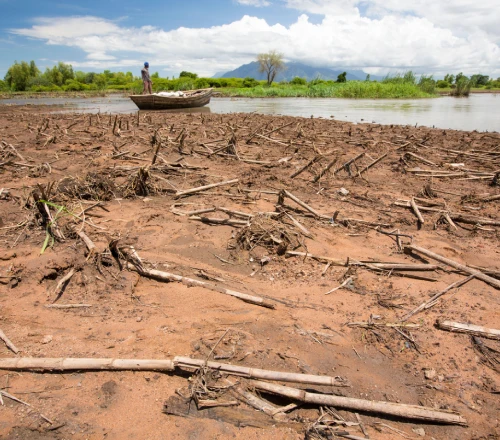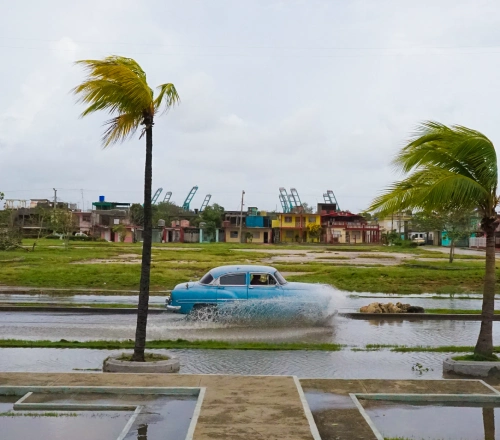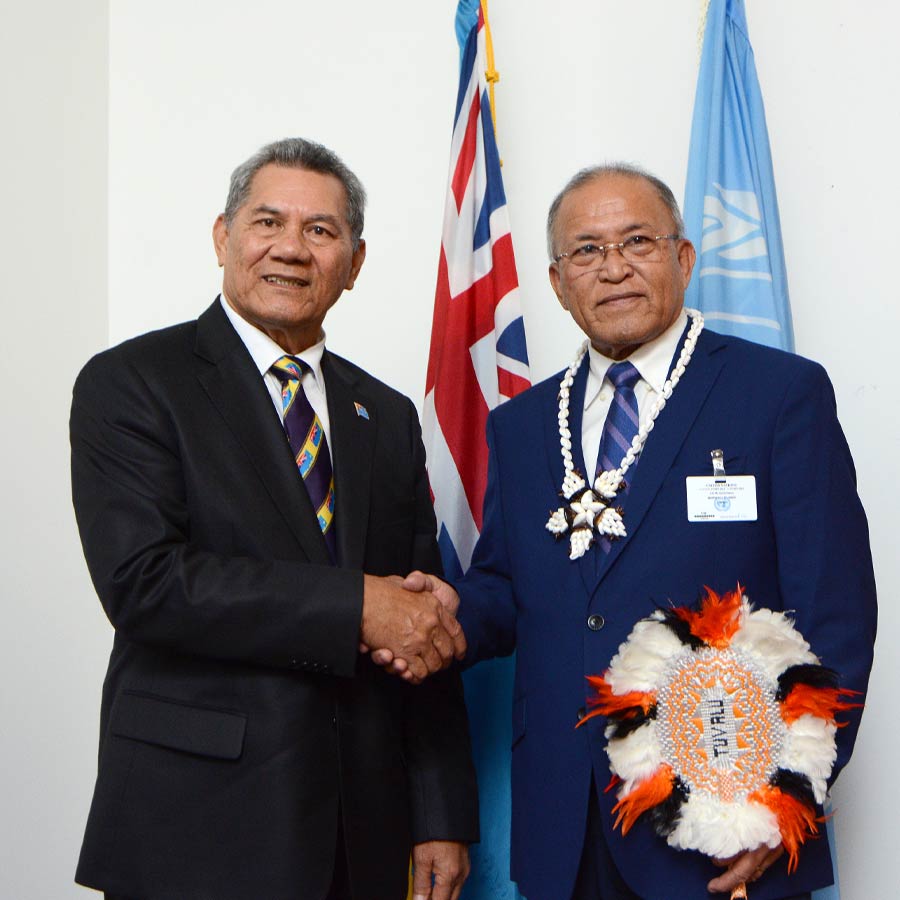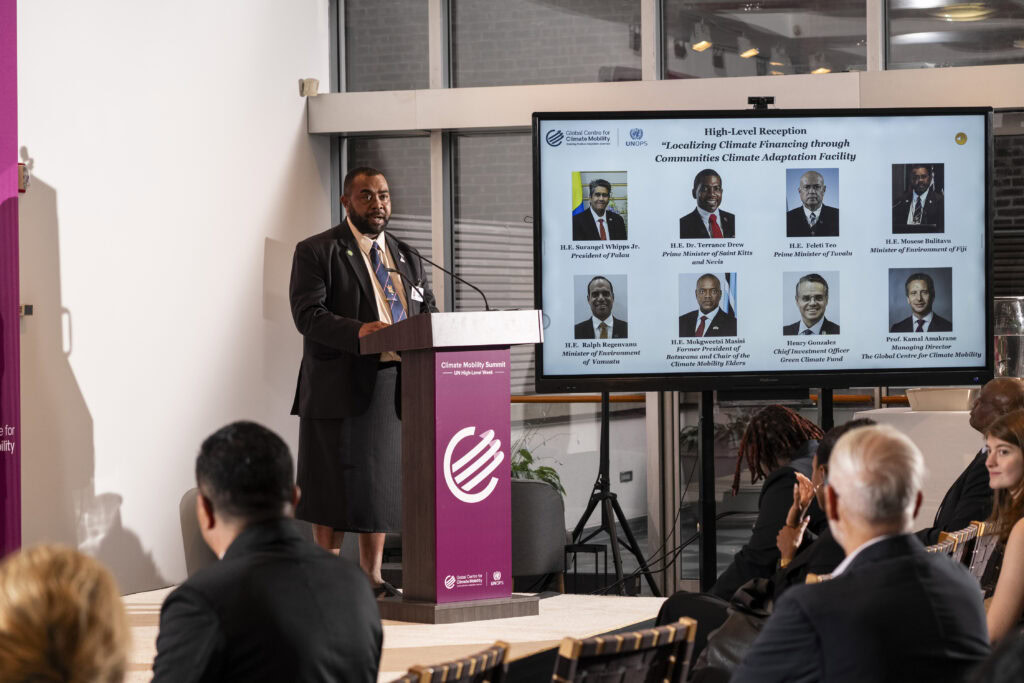Suva, Fiji, October 6— The Government of the Republic of Fiji and the Global Centre for Climate Mobility (GCCM), announced the selection of the first three community-led adaptation projects under the Communities Climate Adaptation Facility (C-CAF). Following rigorous review the Macuata-i-Wai Community, Narata Community, and Vuniniudrovu Village have been selected to receive rapid-response adaptation grants of USD $100,000 each to execute community-designed projects to advance resilience and adaptation to the climate crisis.
This milestone represents the first time globally that such rapid-response adaptation financing is being delivered directly to frontline communities. By anchoring the process at the national level, Fiji is demonstrating international leadership in pioneering a model of climate finance that is direct, rapid, and community-centered. The selected projects are ready to move immediately into implementation, delivering quick and tangible impact for communities already living with the consequences of climate change.
In Macuata-i-Wai, where saltwater intrusion, coastal erosion, and flooding have placed homes, farmland, and food security at severe risk, the project will construct elevated, climate-resilient housing and upgrade water and sanitation systems to ensure safe, reliable access. It will also restore protective ecosystems, including mangroves, to stabilise shorelines and buffer communities against future hazards.
In Narata, located in the floodplain of the Naqalitala River in Sigatoka, the project will focus on the urgent relocation of households most at risk from severe riverbank erosion and recurrent floods. It will also support nature-based solutions to stabilise riverbanks, reduce flood risks, and strengthen food security for vulnerable households.
In Vuniniudrovu Village, Naitasiri Province, the project will relocate households from a high-risk peninsula threatened by flash floods and riverbank collapse. Families will be resettled into newly constructed climate-resilient homes, built on safer grounds with elevated flooring and cyclone-resistant designs, ensuring their long-term safety and resilience. This initiative safeguards livelihoods advancing the implementation of national relocation policies under Fiji’s Climate Change Act.
“For the villages of Vuniniudrovu, Narata and Macuata-i-Wai, this is about more than adaptation – it is about safeguarding homes, culture and dignity in the face of escalating climate risks. Through the GCCM C-CAF, Fiji is ensuring that new, predictable finance reaches communities directly and supports locally led solutions. Guided by the Ministry of Environment and Climate Change’s mandate to drive Fiji’s National Adaptation Plan and climate mobility agenda, these efforts demonstrate how national policies can translate into tangible resilience on the ground. As we look to COP30, Fiji and other Small Island Developing States will continue to advocate for finance that is new, predictable and directly accessible to communities, ensuring local leadership drive solutions on the ground,” said Hon. Mosese Bulitavu, Minister for Environment and Climate Change.
The C-CAF is a global initiative spearheaded by the GCCM and hosted by the United Nations Office for Project Services (UNOPS). Unlike conventional climate finance, which often favors large-scale infrastructure projects, the C-CAF channels resources directly to communities. The C-CAF was also lauded for its efficiency, ensuring that all grants were disbursed within 100 days of the call for proposals. Grants support needs already defined by the communities themselves, enabling them to bypass lengthy planning phases and begin implementation immediately.
“The approval of these pioneering projects marks a defining standard for the future of climate finance: swift in action, direct in delivery, and rooted in the leadership of communities themselves. Only through such a model can we nurture the agency required to drive meaningful and enduring adaptation,” said Professor Kamal Amakrane, Managing Director of the Global Centre for Climate Mobility. “Fiji’s example shows the world that adaptation can deliver quick, concrete results when resources flow directly to those who need them most.”
The C-CAF is mobilizing USD $20 million in its 2026 fundraising campaign to expand its contribution across Africa, the Pacific, the Greater Caribbean, and Coastal Cities. With Fiji taking the lead in demonstrating how this model can work in practice, the C-CAF is laying the foundation for a new era of localized, community-driven climate finance that strengthens resilience, preserves dignity, and protects livelihoods on the frontlines of the climate crisis.
For more information, contact:
Fiji Ministry of Climate Change
Matereti Mateiwai
Email: matereti.mateiwai@environment.gov.fj
The Global Centre for Climate Mobility
Jaclyn Licht
Email: licht@climatemobility.org
About the Global Centre for Climate Mobility:
The Global Centre for Climate Mobility (GCCM) is a global entity at the intersection of climate action and human mobility, enabling positive adaptation journeys for people and communities on the frontlines of the climate crisis, upholding their adaptive capacities and the Right to Stay. Hosted at the United Nations Office for Project Services (UNOPS), the GCCM is supported by champion countries, UN Agencies, the World Bank, regional organizations, philanthropies, civil society, and research institutions. The GCCM advances positive community transitions in climate-vulnerable regions through regional initiatives that support governments and frontline communities to anticipate, plan for, and respond to climate mobility, including the Africa Climate Mobility Initiative (launched in 2021), the Greater Caribbean Climate Mobility Initiative (2022), the Pacific Climate Mobility Initiative (2023), and the Coastal Cities Initiative (2025). The GCCM also enables the Rising Nations Initiative (RNI), which supports Small Island Developing States and low-lying coastal States in addressing the existential threats posed by sea-level rise. The GCCM is structured around four core Practices: the Knowledge & Policy Hub, the Solutions Lab, the Communities Climate Adaptation Facility (C-CAF), and the Climate Mobility Academy, through which the Centre delivers modeling & research, co-creates locally led solutions, informs policy, fosters partnerships, and builds capacity across the climate mobility ecosystem. It serves as the secretariat for the Coalition for Addressing Sea-Level Rise and its Existential Threats (C-SET), the Ocean Rise & Coastal Resilience Coalition, and the Climate Mobility Elders Group (C-MEG).









